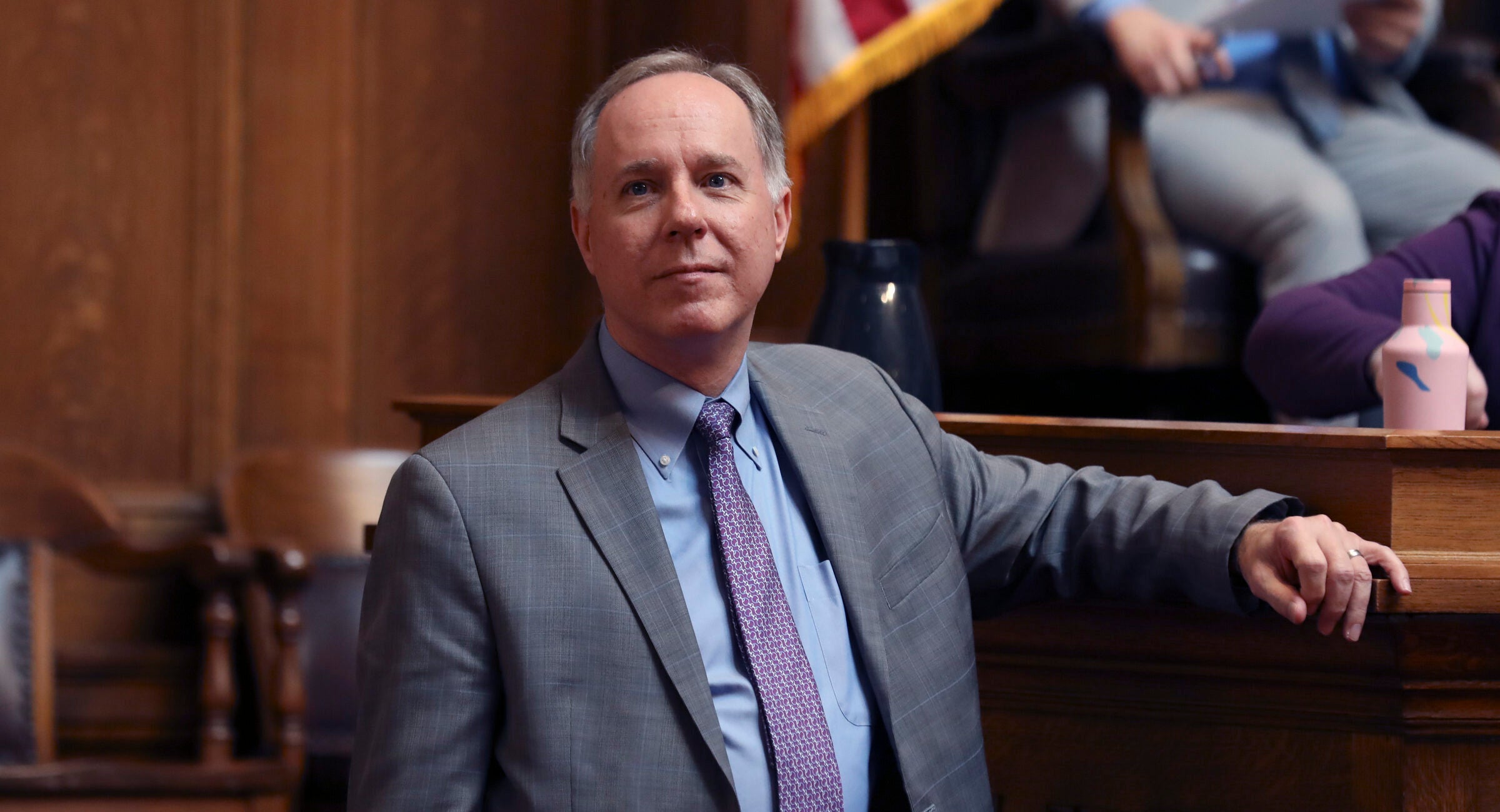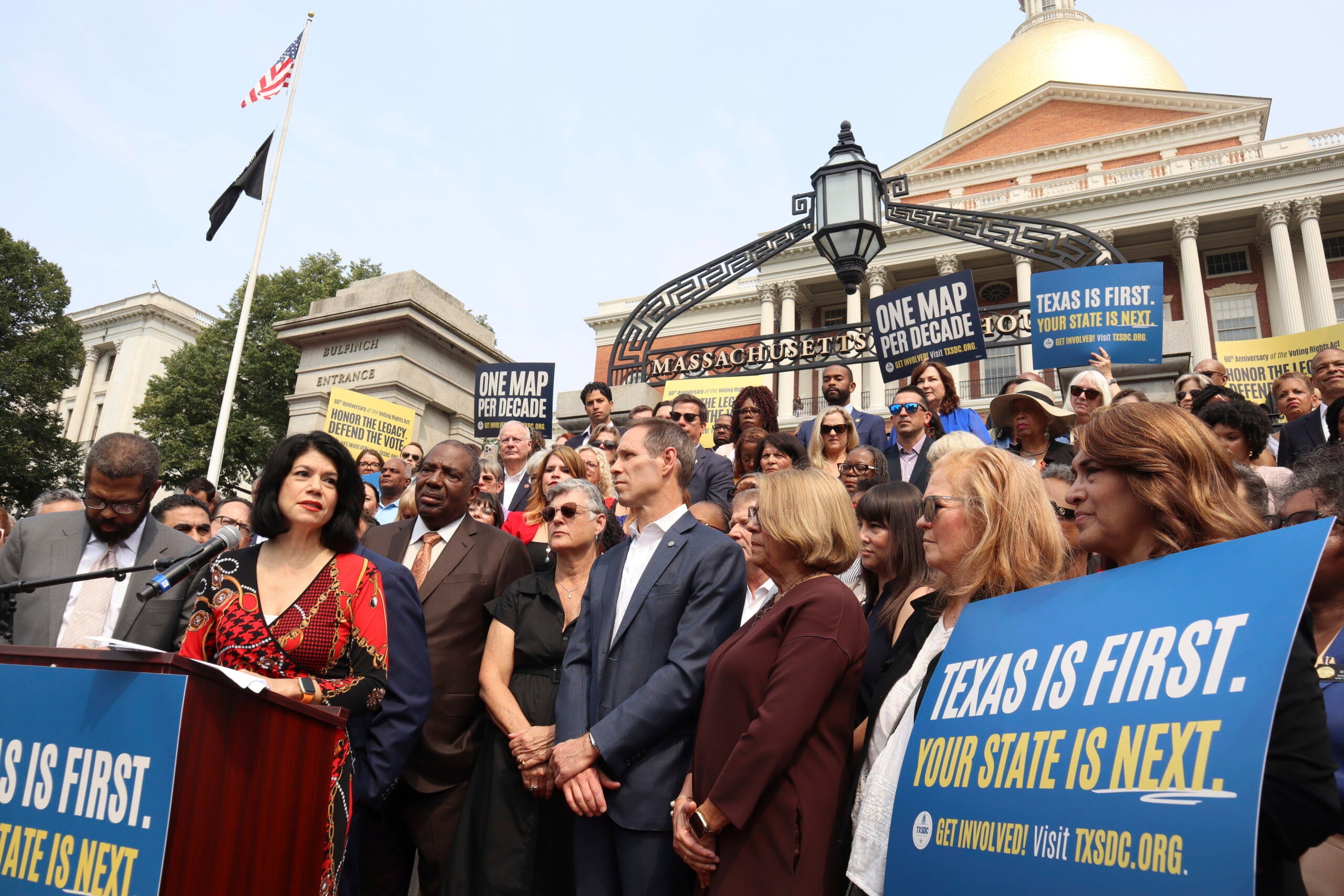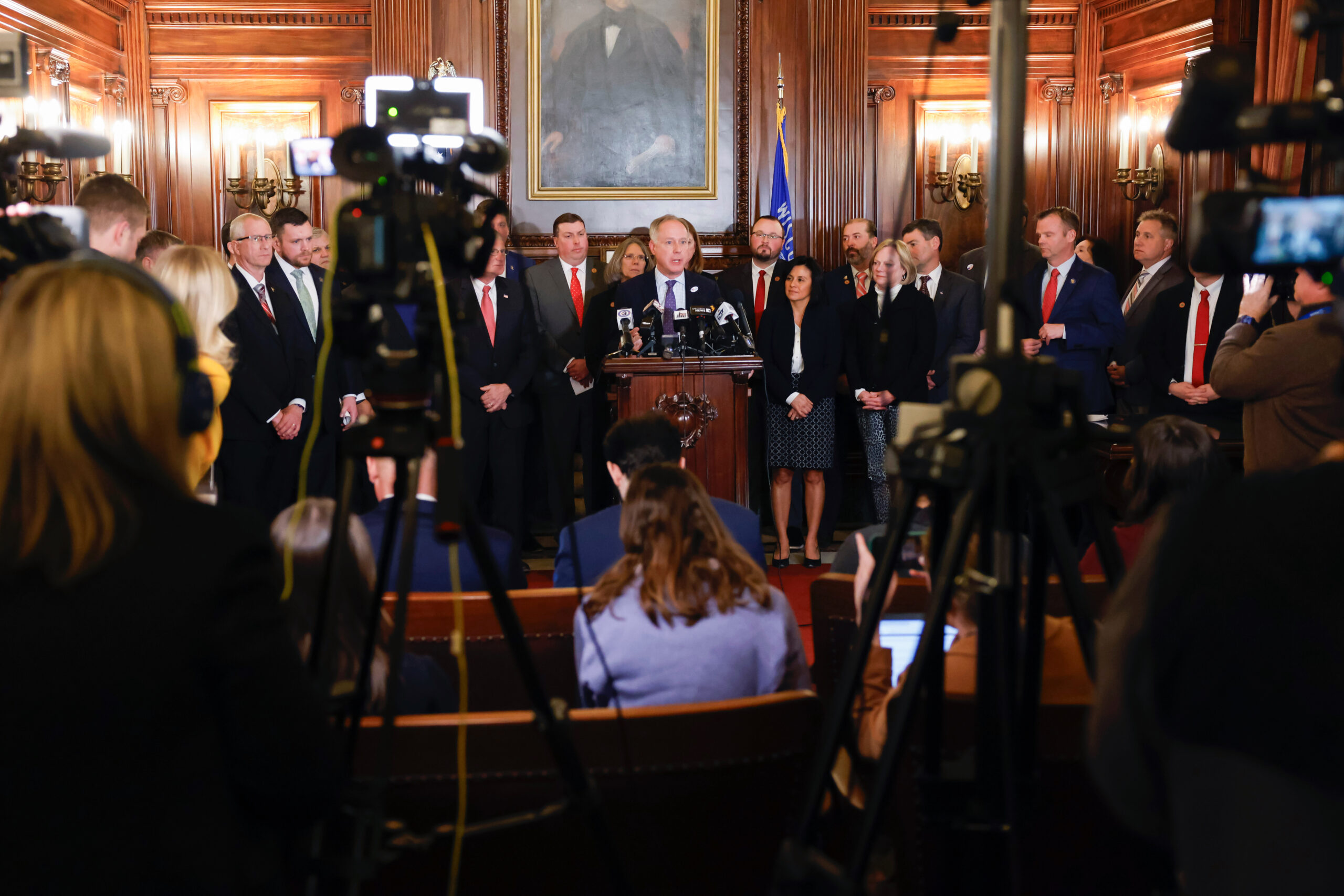In a surprise twist, Wisconsin Republicans announced a plan Tuesday to adapt an Iowa-style system for drawing voting maps in Wisconsin.
Assembly Speaker Robin Vos is hoping to fast-track the vote for Thursday, saying he wants the new system to be in effect for the 2024 election cycle.
Democratic Gov. Tony Evers almost immediately criticized the proposal, saying it amounts to election interference by Wisconsin Republicans.
News with a little more humanity
WPR’s “Wisconsin Today” newsletter keeps you connected to the state you love without feeling overwhelmed. No paywall. No agenda. No corporate filter.
Under the Iowa system, a nonpartisan body draws district maps that are then subject to a vote by the state Legislature.
The move by Republicans comes as the party is under pressure for targeting newly-elected Wisconsin Supreme Court Justice Janet Protasiewicz for possible impeachment. The existing Republican-drawn maps are also facing court challenges likely to go before the state Supreme Court, which is now controlled by a liberal majority.
Vos, R-Rochester, said that implementing a new process would stave off political rancor, after the state Democratic party announced a $4 million campaign fighting impeachment.
“I think…we are going to get this bill passed, we are going to get it signed by Gov. Evers, we’re going to have maps that look different,” he said. “So there will be no need to have the whole discussion about recusal and millions of dollars of attack ads and special interest trying to buy the election and all the things that we know are coming.”
For the Republican’s new plan to go into effect, it would need to pass the state Senate and then win the support of Evers.
But in a statement, Evers said Wisconsin Republicans “cannot be trusted to appoint or oversee someone charged with drawing fair maps.”
“Republicans’ new effort today to ensure Legislature-picked and Legislature-approved map drawers is just the latest of years’ worth of efforts by Republicans to interfere with and control the outcome of Wisconsin’s elections,” Evers said.
Republicans, who’ve been ramping up their efforts to interfere in Wisconsin elections, are now demanding Legislature-picked and Legislature-approved map drawers for legislative districts. That’s bogus.
Read my full statement ⬇️https://t.co/AVCRosMsvQ pic.twitter.com/kttVVS1QJ7
— Governor Tony Evers (@GovEvers) September 12, 2023
Ben Wikler, chair of the Democratic Party of Wisconsin, and Senate Majority Leader Devin LeMahieu, R-Oostburg, did not immediately respond to requests for comment from WPR.
Wisconsin’s legislative maps have been subject to a series of legal challenges, with critics saying partisan gerrymandering has given Republicans an unfair advantage. In April 2022, the court ruled 4-3 in favor of a legislative redistricting plan drawn by Republican lawmakers that gave the party’s candidates in the Legislature a bigger advantage over the next decade.
New maps are drawn every 10 years.
For years, Vos has opposed turning over legislative maps to a non-partisan agency. When asked about this on Tuesday, he said “sometimes you have to listen and change your mind.”
“I certainly prefer the system that we have right now. But I also think that most Wisconsinites don’t want us to waste millions and millions of dollars, and lots and lots of time,” Vos said.
The majority of Wisconsinites oppose gerrymandering and want nonpartisan redistricting, according to a Marquette Law School Poll released in January 2019.
According to the poll, 72 percent of Wisconsin voters want a nonpartisan commission to draw the legislative and congressional district maps instead of the elected officials, with 63 percent of Republicans agreeing with it, 76 percent of independents, and 83 percent of Democrats.
Editor’s note: This story will be updated.
For more on the history of redistricting in Wisconsin and how it impacts political power in the state, check out WPR’s investigative podcast series, “Mapped Out.”
Wisconsin Public Radio, © Copyright 2025, Board of Regents of the University of Wisconsin System and Wisconsin Educational Communications Board.






